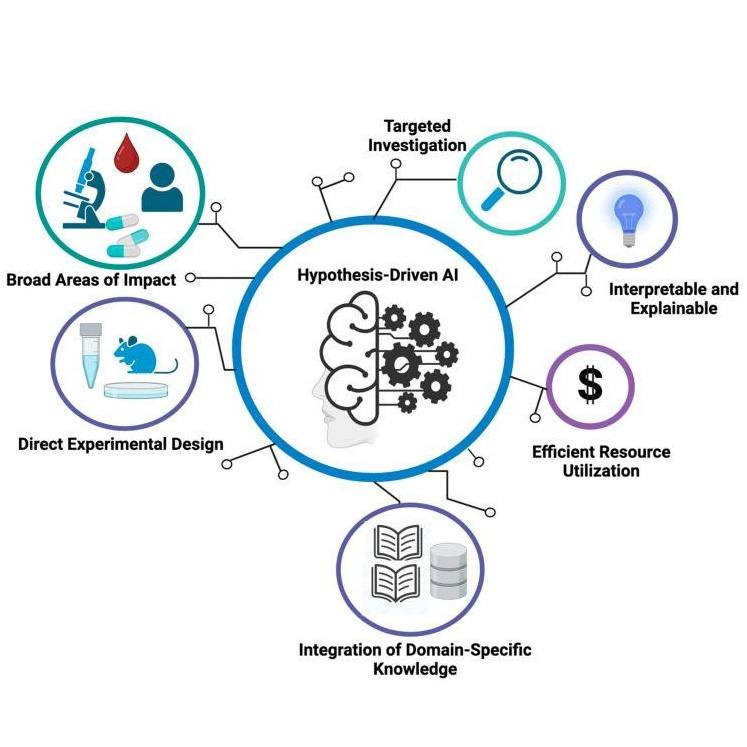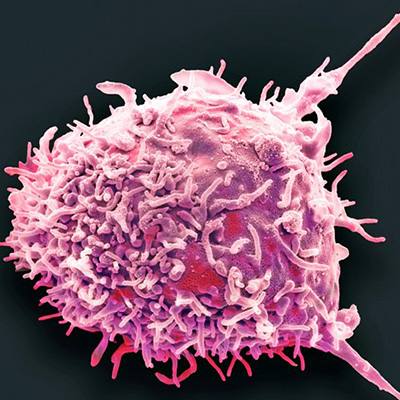-
Individualized Medicine
Science Saturday: A new era in colon cancer detection and treatment
 March is Colorectal Cancer Awareness Month, a time to focus on one of the most common and preventable forms of cancer. Mayo Clinic is applying a new genomic lens to colorectal and other cancers to identify which are the types that run in families. The answer to that could open new treatment options and also take the guess work out of who else in your family is at higher risk for cancer.
March is Colorectal Cancer Awareness Month, a time to focus on one of the most common and preventable forms of cancer. Mayo Clinic is applying a new genomic lens to colorectal and other cancers to identify which are the types that run in families. The answer to that could open new treatment options and also take the guess work out of who else in your family is at higher risk for cancer.
Niloy “Jewel” Samadder, M.D., a gastroenterologist at Mayo Clinic’s Arizona campus, is leading efforts to usher in a new era of screening and detection that focuses on identifying hereditary cancers. Research shows that 1 in every 15 cases of colon cancer and possibly up to 1 in every 5 cases of cancer overall are linked to underlying inherited genetic mutations.
A diagnosis of hereditary cancer often changes treatment to an individualized approach shaped by a patient’s genetic makeup. Mayo Clinic, with the support of the Center for Individualized Medicine, is moving toward testing all cancer patients for such inherited mutations — not just patients with cancer in their family tree.

“If we know that cancer was genetically predisposed, it can lead to unique options ensuring that treatments target the cancer and minimize side effects,” says Dr. Samadder. “For example, research shows that certain targeted chemotherapies and immunotherapies are not specific to the type of tumor or cancer but really act on certain molecular pathways. So, whether that cancer is colon, prostate or breast, we can respond with a drug that is targeted to the genetic mutations that caused that cancer rather than a specific tumor.”
To identify hereditary cancer, Mayo uses a robust DNA blood test panel that examines genes known to have links to cancer.
“This is the most comprehensive cancer genetic panel available today,” says Dr. Samadder. “We believe this gives us the tools for catching and treating inherited cancers that might have gone undetected in the past.”
If this test finds you have an inherited cancer, there is a 50 percent chance your immediate family members have the same genetic alteration that would increase their chance of developing a similar cancer. Under current cancer screening guidelines, up to half of all inherited cancers go undetected — a missed opportunity for early detection and possibly even cancer prevention.
Those with a genetic predisposition face a greater than average lifetime risk for cancer, but it is not 100 percent certain they would develop the disease. Lifestyle and environment also play a role in cancer risk.
Prevent a second cancer
Keila Alvarado of Phoenix was diagnosed with rectal cancer in 2008 at the age of 32. Genetic testing revealed Lynch syndrome, a hereditary condition that puts her at higher risk of developing colon, ovarian, uterine, stomach and other cancers.

“I was surprised. I really didn’t understand much about genetics at the time. I’m happy to have this information, because it’s better to be prepared. I now understand my risk for future cancers,” says Alvarado.
With grit and determination, Ms. Alvarado fought rectal cancer with surgery, chemotherapy and radiation. Now in remission, she has turned her attention to a new challenge: preventing a second type of cancer related to Lynch syndrome. She’s had a pre-emptive hysterectomy, has yearly blood work and screenings and is vigilant about her health.
“Any time the doctor says this is a preventive measure, I’m like, ‘ya, let’s do it.’ I don’t mind the different tests. I also take seriously my intake of food and how I can eat healthier. I try to be conscious of what I do and live a healthy lifestyle,” she says.
Now others in Alvarado’s family know they, too, could be at risk of inherited mutations that put them at higher risk for cancer. Some family members have chosen to have genetic testing, and those who also tested positive for Lynch syndrome can take a proactive approach to prevention.
“For patients with Lynch Syndrome, we suggest earlier and more frequent screenings. We recommend the first colonoscopy at age 20 and then once every one to two years after that. That’s different from the normal population where we start at age 50 and test every five to 10 years after that. We also recommend more frequent imaging, blood work, urine tests and skin exams,” Dr. Samadder says. “We would also refer females to a gynecologist to monitor for risks of uterine and ovarian cancer — possibly even recommending pre-emptive surgery.”
In some cases, Mayo will refer patients for chromoendoscopy, an ultra-sensitive screening which applies a special stain during a colonoscopy to detect polyps that might have otherwise been missed.
Dr. Samadder says Keila Alvarado’s case is a great example of how a new era of genetic screening can help inform family members who might not have known they are at higher risk of cancer. They can respond proactively to try to prevent cancer or catch it an early stage when it is curable.
###
Colon, rectal, uterine, ovarian, renal, stomach, small bowel, brain and skin (melanoma and sebaceous) cancers
Colon, rectal, stomach, small bowel, brain and thyroid cancers
Breast, ovarian, pancreatic, prostate and skin (melanoma) cancers
Stay informed
Want to read more stories like this one?
Register to get weekly updates about new stories on Mayo Clinic Center for Individualized Medicine blog.
Save the date!
Learn from and network with researchers and innovators in oncology at
Individualizing Medicine 2019 Conference: Precision Cancer Care through Immunotherapy and Genomics
Key themes include:
- CAR-T therapy
- Clonality
- Pharmacogenomics
- Lineage Plasticity
- National Cancer Institute.
Join the conversation
For more information on the Mayo Clinic Center for Individualized Medicine, visit our Facebook, LinkedIn or Twitter at @MayoClinicCIM.
Related Articles








